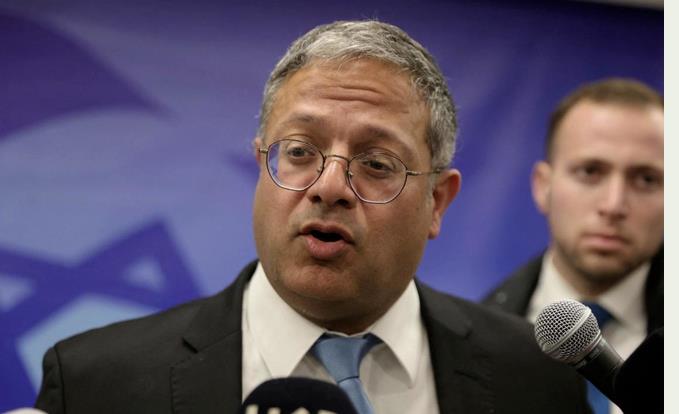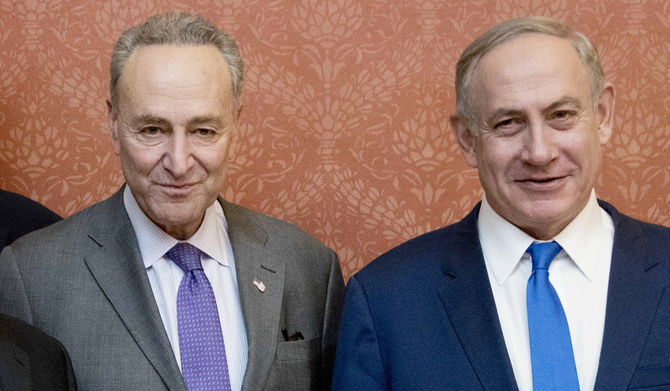
In December 2018, 17-year-old Palestinian Ayham Sabah was sentenced by an Israeli military court to 35 years in prison for his alleged role in a stabbing attack that targeted an Israeli soldier in an illegal Jewish settlement in the West Bank. Sabah was only 14 when the alleged attack took place. Another accused, Omar Al-Rimawi, also 14, was reportedly shot. He later succumbed to his wounds.
Although the UN Convention on the Rights of the Child defines a “child” as “every human being below the age of 18 years,” Israel chooses not to abide by that definition. In Israel, there are two kinds of children: Israeli children, who are aged 18 or younger, and Palestinians children, who are 16 and under. In Sabah’s case, he was detained long enough to ensure that he was tried as an “adult,” as per Israel’s skewed legal standard.
According to research conducted by the Israeli rights group B’Tselem, at the end of August there were 185 Palestinian children, including two aged under 14, being held in various Israeli prisons as “security detainees and prisoners.”
Thousands of Palestinian children are frequently rotated through the Israeli prison system, often accused of “security” offences, which include taking part in anti-occupation protests and rallies in the West Bank. The Palestinian Prisoners’ Association estimates that at least 6,000 Palestinian children have been detained in Israeli prisons since 2015. The association revealed in April that “98 percent of the children held had been subjected to psychological and/or physical abuse while in Israeli custody,” and that many of them were detained “after first being shot and wounded by Israeli troops.”
While Gazan children are the ones most likely to lose their lives or get shot by the Israeli army, the children of East Jerusalem are “the most targeted” by Israeli troops in terms of detention or prolonged imprisonment.
In 2016, the US and Israeli governments signeda 10-year memorandum of understanding, whereby the US pledged to grant Israel $38 billion in military aid. The previous agreement, which concluded in 2018, also gave Israel more than $3 billion per year. A large portion of that money was, and still is, used to subsidize the Israeli prison system and military courts located in the Occupied Territories — the kind that regularly detain and torture Palestinian children.
Aside from the US, which has blindly supported Israel’s ongoing violations of international law, many governments and rights groups around the world have constantly highlighted Israel’s criminally reprehensible treatment of Palestinian children.
In a written submission by Human Rights Watch (HRW) to the Committee on the Rights of the Child on the State of Palestine in March, the group reported that Palestinian children aged between 12 and 17 years, from the West Bank and East Jerusalem, continue to be detained and arrested by Israeli forces. “Israeli security forces routinely interrogate children without a guardian or lawyer present, use unnecessary force against children during arrest, which often takes place in the middle of the night, and physically abuse them in custody,” HRW added.
While the US government, lawmakers and media often turn a blind eye to such violations, Rep. Betty McCollum does not. The representative for Minnesota’s 4th congressional district has taken a stand against the prevailing norm in American politics, arguing that Israel must respect the rights of Palestinian children, and that the US government should not be funding Israel’s violations of human rights.
McCollum introduced House Resolution 2407, “Promoting Human Rights for Palestinian Children Living Under Israeli Military Occupation Act,” in April. “I am introducing legislation to protect children from abuse, violence, psychological trauma, and torture,” she said in her statement to Congress. “The legislation I am introducing is expressly intended to end US support and funding for Israel’s systematic military detention, interrogation, abuse, torture, and prosecution of Palestinian children.”
By introducing this bill, McCollum has broken several major taboos in the US government. She unapologetically characterizes Israel’s violations of Palestinian rights with all the correct terms — torture, abuse, etc. — and she calls for conditioning US military support for Israel on the latter’s respect for human rights. As of last week, it had 22 co-sponsors, with Rep. Mark DeSaulnier being the latest congressman to add his name to the list.
This is not the first time McCollum has taken such brave action. In November 2017, she introduced the “Promoting Human Rights by Ending Israeli Military Detention of Palestinian Children Act” (H.R. 4391). She pushed that bill with the same vigor and moral clarity as today’s campaign.
The 2017 bill was not enacted in the previous Congress. McCollum is hoping for a different outcome this time around, and there are good reasons to believe H.R. 2407 might succeed. One opinion poll after another points to a shift in Americans’ perception of Israel, especially among Democrats and even Jewish voters.
Eager to exploit the political chasm, US President Donald Trump accused Jewish Democrats who don’t support Israel of being “disloyal.” “The Democrats have gone very far away from Israel,” Trump said last August. “In my opinion, you vote for a Democrat, you’re being very disloyal to Jewish people and very disloyal to Israel.”
In fact, it seems that an increasing number of American voters are now linking their perception of Israel to their perception of their own polarizing president and his relationship with the equally polarizing Israeli Prime Minister Benjamin Netanyahu.
The above reality is now widening the margins of criticism of Israel, whether in the US Congress, media or other facets of American life that have historically stood on the side of Israel, despite its dismal human rights record.
While one hopes that McCollum’s bill pays dividends in the service of human rights in Palestine and Israel, one equally hopes that the current shift in American political perceptions continues unhindered.
Ramzy Baroud is a journalist, author and editor of Palestine Chronicle. His latest book is “The Last Earth: A Palestinian Story” (Pluto Press, London). Baroud has a Ph.D. in Palestine studies from the University of Exeter. Twitter: @RamzyBaroud











